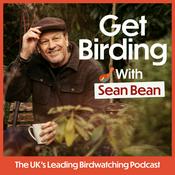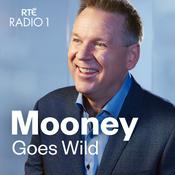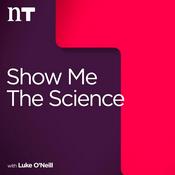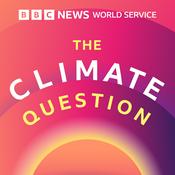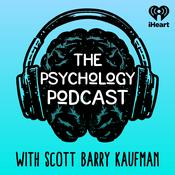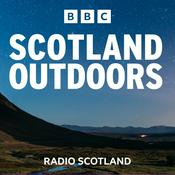Grazing Grass Podcast sharing Regenerative Ag Stories
Grazing Grass

Latest episode
211 episodes
- Tyler Flynn runs a small beef cow-calf operation in Northern California at Farmer Tyler Ranch, where he also grows hay and raises a few pigs and chickens for family use while documenting the work and lessons learned through his YouTube channel.
In This Episode, We Explore:
Coming back to a family ranch and building a cow-calf business on small acreage
Northern California conditions, including irrigated pasture, rice country, and seasonal rainfall patterns
How and why Tyler uses irrigated pasture rotation, including short rest periods in his context
The shift from small square bales to round bales and what changed his mind
Using hay equipment as a pasture improvement tool, including baling pastures after grazing
Tackling smut grass by cutting, baling, and managing where those bales are fed
Breed composition over time, including Hereford roots and adding SimAngus genetics for heterosis
How YouTube influenced management decisions and helped drive experimentation
Practical YouTube lessons for farmers, including audio, camera stability, and consistent posting
Why This Episode Matters
This conversation is a good reminder that management has to fit the place and the people running it. Tyler shares what works on irrigated pasture in Northern California, how he thinks through rotation length, equipment decisions, and weed pressure, and why consistency and realism matter when you are balancing time, labor, and livestock.
Resources Mentioned
- GoPro cameras
- Tripod (video stability)
- Microphone (audio quality)
Find Out More
Farmer Tyler Ranch on YouTube | https://www.youtube.com/@farmertylerranch4399
Looking for grass-based breeders?
Explore the Grass Based Genetics directory.
Upcoming Grazing Events
Noble Profitability Essentials - Jefferson City, Mo, March 24-25, 2026
Visit our Sponsors:
Noble Research Institute
Redmond Agriculture
Grazing Grass Links
Website
Community (on Facebook)
Original Music by Louis Palfrey - Kasie Harriet is the milkmaid at Shepherd Farms, where she and her husband Jacob are building a direct-to-consumer farm business that includes raw milk, sourdough, tallow skincare, and more, while managing cows in a rotational grazing setup and learning what it really takes to run a small dairy at the family scale.
In This Episode, We Explore:
Kasie’s path from FFA and wildlife work into farm life and dairy cows
Why they pursued raw milk and how that led to buying their first family milk cow
Lessons learned from a first cow that tested positive for bacteria and how they handled it
Setting up a movable, low-cost milking stanchion and why “you don’t need a lot to do a lot”
Hand milking vs machine milking and the real-world importance of equipment that is easy to clean
Calf sharing, grafting a calf, and how that can add flexibility to dairy cow ownership
Selling excess milk, managing weekly customers, and handling jars and deposits
What to look for when buying a milk cow: testing, temperament, training, feeding history, and more
Using Facebook to educate customers, build trust, and grow a local direct-to-consumer community
Why This Episode Matters
If you are considering a family milk cow or selling raw milk direct-to-consumer, this episode walks through the practical realities that often get skipped, including cow selection, sanitation concerns, equipment choices, customer management, and the setbacks that can happen even when you do things carefully. Kasie’s story is a grounded reminder to learn, adjust, and keep moving forward.
Resources Mentioned
Keeping a Family Cow by Joann S. Grohman
Keeping a Family Milk Cow, holistic and organic (Facebook group)
Find Out More
Shepherd Farms | https://www.facebook.com/profile.php?id=100087351095567
Looking for grass-based breeders?
Explore the Grass Based Genetics directory.
Upcoming Grazing Events
Noble Profitability Essentials - Jefferson City, Mo, March 24-25, 2026
Visit our Sponsors:
Noble Research Institute
Redmond Agriculture
Grazing Grass Links
Website
Community (on Facebook)
Original Music by Louis Palfrey - Jacob Harriet of Shepherd Farms shares how his background in wildlife management in central Oklahoma shaped the way he uses livestock, prescribed fire, and land restoration to build better habitat and a workable farm business. From starting on a small homestead to managing over 1,240 acres through creative lease agreements, Jacob walks through what has worked, what he learned the hard way, and how grazing fits into a broader land stewardship plan.
In This Episode, We Explore:
Jacob’s path from wildlife law enforcement to using livestock as a habitat tool
Turning an over-timbered 80 acres into productive grazing and wildlife habitat
Using rotational grazing to improve land function, manure distribution, and plant recovery
Tree and timber management decisions focused on getting sunlight to the ground
Prescribed fire vs mechanical clearing for controlling woody encroachment, especially cedar
How burn associations, burn plans, and local support make prescribed fire safer and more practical
Managing land for wildlife needs alongside grazing goals, including turkey and quail habitat
Finding and using grants for infrastructure, water, timber work, and prescribed fire
Building a mixed-species orchard and using chickens to manage pests and understory
A lease model that trades professional habitat management for grazing access across multiple properties
Tracking grazing and land work with mapping tools and documentation
Why This Episode Matters
This conversation is a practical look at connecting grazing, habitat, and land access in a way that works in the real world. If you are trying to improve a neglected property, reduce cedar pressure, learn why prescribed fire matters, or find a creative path to more grazing acres without buying land, Jacob’s approach offers clear ideas you can adapt to your own place.
Resources Mentioned
Natural Resource University (podcast network)
OnX Hunt Maps (phone app)
NRCS (local office support for conservation programs and grants)
National Wild Turkey Federation (NWTF)
Quail Forever
Ty Ty Nursery (trees for the orchard)
Find Out More
Shepherd Farms | https://www.facebook.com/profile.php?id=100087351095567
Looking for grass-based breeders?
Explore the Grass Based Genetics directory.
Upcoming Grazing Events
Noble Profitability Essentials - Jefferson City, Mo, March 24-25, 2026
Visit our Sponsors:
Noble Research Institute
Redmond Agriculture
Grazing Grass Links
Website
Community (on Facebook)
Original Music by Louis Palfrey - Glenn McCaig of Perry's Corners Farm returns to the Grazing Grass Podcast to talk through livestock systems that stay practical when you stop trying to perfect everything. Farming with his wife Megan and their three young children just outside Kitchener, Ontario, Glenn shares what is working on their sandy, rocky ground with Lynch Lineback cattle, English Large Black pigs, Clun Forest type sheep, and pastured poultry.
In This Episode, We Explore:
What Lynch Lineback cattle are and why Glenn values a closed herd approach
Calf-sharing milk cows and feeding milk to pigs as part of a whole-farm system
A gilt-only farrowing system that simplifies pig management and tightens farrowing windows
Selecting boars early using practical traits like teat count and mothering ability
Farrowing in pens vs pasture, and what changed with labor, predator pressure, and piglet losses
Using simple ear notching to make culling decisions faster and more consistent in sheep
Closed-flock sheep management, prolific genetics, and handling triplets and quads
The realities of wool marketing and why some wool is not worth saving
Why Glenn went soy-free (and briefly corn-free) with pigs, and what he learned trying soy-free layers
What migratory grazing changed for Glenn, and the cattle behavior he notices now
A calendar-based way Glenn thinks about the summer slump, rest periods, and how hay decisions affect grazing
Why This Episode Matters
If you have ever felt like your livestock enterprise got harder the more you tried to fine-tune it, this episode gives a grounded look at simplifying without backing away from good management. Glenn lays out practical systems for pigs, sheep, and cattle that reduce moving parts, tighten decision making, and keep the farm working in real conditions like predator pressure, winter feeding, and limited labor.
Resources Mentioned
Acres U.S.A. Podcast
Barefoot Biodynamics by Jeff Poppen
Steve Campbell (mentioned in context of clean minerals)
Burke Teichert (quote referenced)
Find Out More
Perry's Corners Farm | https://perryscornersfarm.ca
Grazing Grass Community
Looking for grass-based breeders?
Explore the Grass Based Genetics directory.
Upcoming Grazing Events
Noble Profitability Essentials - Jefferson City, Mo, March 24-25, 2026
Visit our Sponsors:
Noble Research Institute
Redmond Agriculture
Grazing Grass Links
Website
Community (on Facebook)
Original Music by Louis Palfrey - Mason Lautenschlager and his wife Hannah run Arrow L Ranch near Berthold in northwest North Dakota, where they focus on grass-based enterprises including a cow-calf herd, some direct grass-finished beef, and selling multi-bred composite coming 2-year-old bulls developed on forage.
In This Episode, We Explore:
Building a ranch back after his family sold out of farming and ranching
Buying cows at the top of the market and navigating the crash afterward
Shifting the whole operation toward lower labor and lower equipment intensity
Winter grazing decision-making around snow cover, forage quality, and flexibility
Bale grazing setup, timing, and what it changed on poorer soil areas
Water limitations, fencing lanes, and building a system for easier moves
Stockpiling forage and planning grazing around winter and spring needs
Increasing plant diversity through grazing management rather than seeding
Using forage clippings to estimate available dry matter per acre
Developing bulls on forage and selecting for longevity and fertility over max production
Why This Episode Matters
If winter feed, labor, and equipment costs are squeezing your operation, Mason’s story is a practical look at how constraints can force better systems. This conversation gets into the real tradeoffs of stockpile grazing versus bale grazing, how water and fencing design affect what is possible, and why selection for fertility and longevity can matter more than pushing production.
Resources Mentioned
Agriculture Alberta video series: Managing Risk in Winter Grazing
Principled Land Managers grazing school (Bart Carmichael and Pat Guptill)
North Dakota Grazing Lands Coalition
DV Auction
Movie: Moneyball
Book: Lasater Philosophy of Cattle Raising (Tom Lasater)
Find Out More
Arrow L Ranch Facebook page | https://www.facebook.com/arrowlranch
DV Auction video catalog for the Arrow L Ranch bull sale (opens Feb 6, closes Feb 8 with a soft close) | https://www.dvauction.com/video_catalogs/13210
Looking for grass-based breeders?
Explore the Grass Based Genetics directory.
Upcoming Grazing Events
Noble Profitability Essentials - Jefferson City, Mo, March 24-25, 2026
Visit our Sponsors:
Noble Research Institute
Redmond Agriculture
Grazing Grass Links
Website
Community (on Facebook)
Original Music by Louis Palfrey
More Science podcasts
Trending Science podcasts
About Grazing Grass Podcast sharing Regenerative Ag Stories
The Grazing Grass Podcast features insights and stories of regenerative farming, specifically emphasizing grass-based livestock management. Our mission is to foster a community where grass farmers can share knowledge and experiences with one another. We delve into their transition to these practices, explore the ins and outs of their operations, and then move into the "Over Grazing" segment, which addresses specific challenges and learning opportunities. The episode rounds off with the "Famous Four" questions, designed to extract valuable wisdom and advice. Join us to gain practical tips and inspiration from the pioneers of regenerative grass farming.
This is the podcast for you if you are trying to answer: What are regenerative farm practices? How to be grassfed? How do I graze other species of livestock? What's are ways to improve pasture and lower costs? What to sell direct to the consumer?
Podcast websiteListen to Grazing Grass Podcast sharing Regenerative Ag Stories, CountryWide and many other podcasts from around the world with the radio.net app

Get the free radio.net app
- Stations and podcasts to bookmark
- Stream via Wi-Fi or Bluetooth
- Supports Carplay & Android Auto
- Many other app features
Get the free radio.net app
- Stations and podcasts to bookmark
- Stream via Wi-Fi or Bluetooth
- Supports Carplay & Android Auto
- Many other app features


Grazing Grass Podcast sharing Regenerative Ag Stories
Scan code,
download the app,
start listening.
download the app,
start listening.


